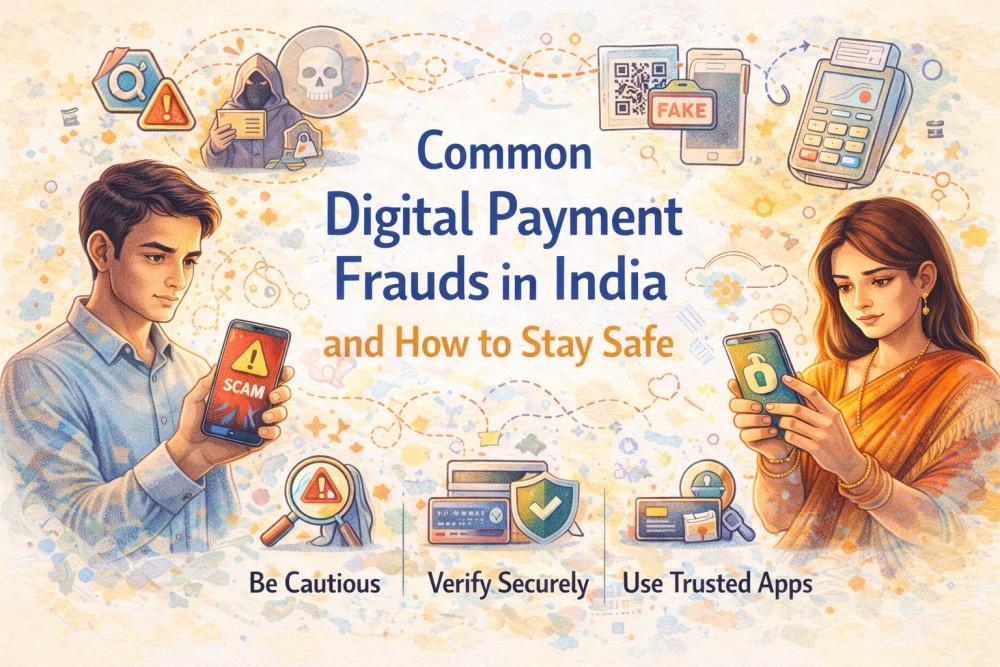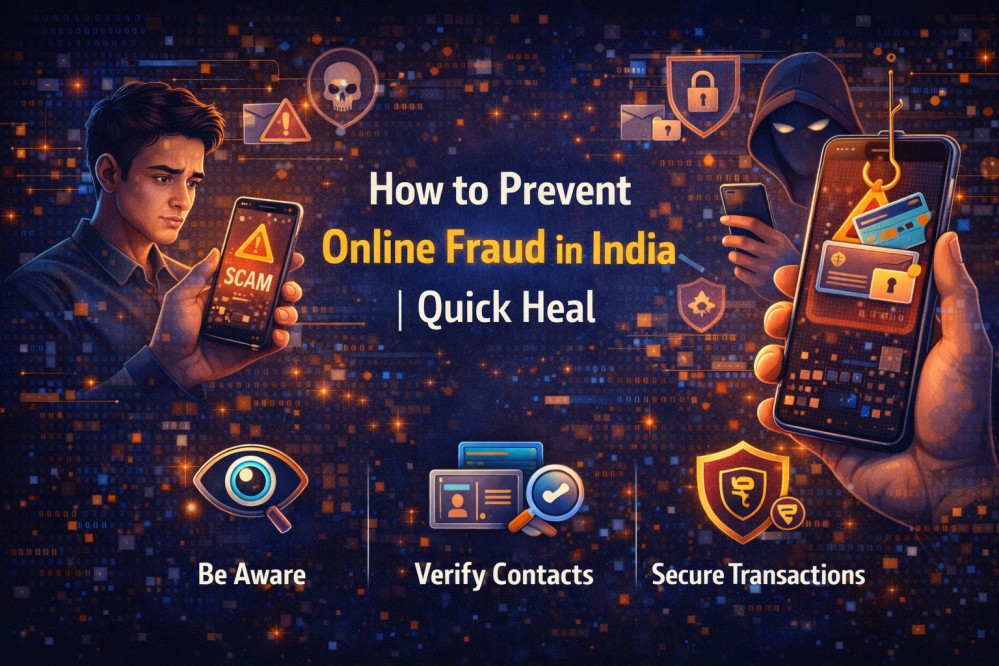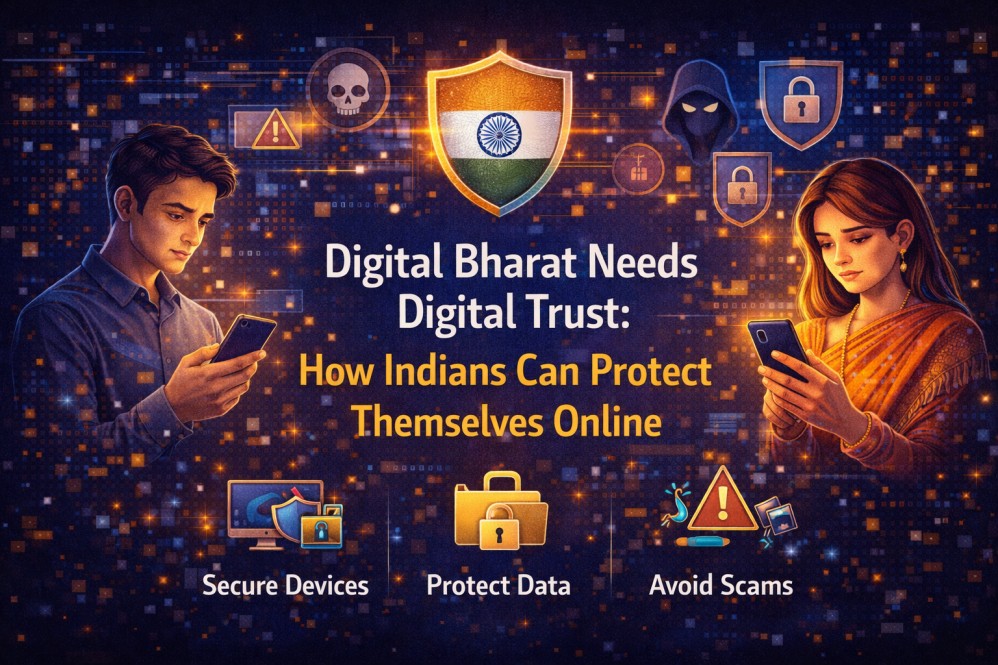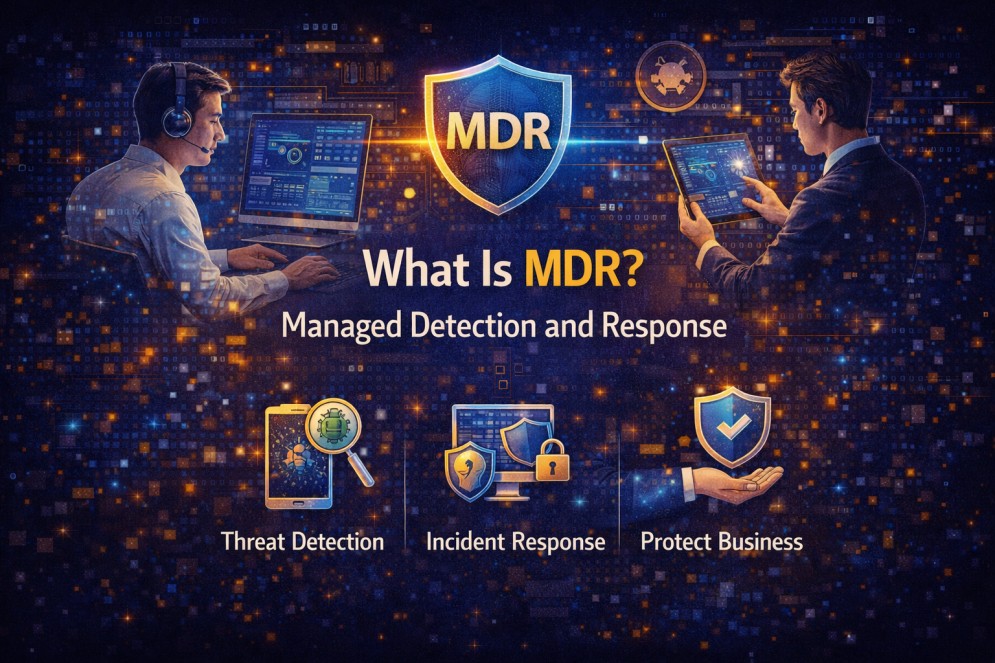
May

How to Prevent Data Mining from Your Online Activity
-
Quick Heal / 9 months
- May 27, 2025
- 0
In an age where personal information is increasingly valuable, it’s crucial to understand how to protect your data from unauthorized collection and analysis. Data mining, the process of extracting patterns and insights from large datasets, can pose significant privacy risks when your online activities are tracked without consent. This blog explores practical steps you can take to prevent data mining and maintain control over your digital footprint.
What is Data Mining?
Data mining involves using sophisticated algorithms to analyze vast amounts of data and uncover hidden patterns, correlations, and trends. While it has legitimate applications in business intelligence and research, data mining in cyber security can also be used maliciously to gather sensitive personal information without your knowledge or permission.
The risks of unethical data mining and cyber security breaches include:
- Personal details being sold to third parties for targeted advertising or identity theft
- Sensitive financial, health, or location data being exposed
- Online behaviors and interests being tracked to build detailed profiles
- Personalized pricing or manipulation based on your data
Use Strong and Unique Passwords
One of the most fundamental ways to protect your accounts from unauthorized access is by using strong, unique passwords. Avoid easily guessable combinations like “123456” or personal details like birthdays. Instead, use long passphrases combining uppercase and lowercase letters, numbers, and symbols.
Enable two-factor authentication (2FA) whenever possible for an extra layer of security. 2FA requires a second form of verification, such as a code sent to your phone, to log in. Password managers can help you generate and securely store complex passwords for each account.
Limit Information Shared Online
Be mindful of the personal details you share on social media and other websites. Avoid oversharing sensitive information like your full name, address, phone number, or financial details. Review your privacy settings regularly to control who can see your posts and profile information.
When creating accounts or making purchases online, only provide the minimum required details. Be cautious about sharing information in quizzes, surveys, or contests, as these can be used for data mining. If a site or app asks for excessive permissions or details, consider whether it’s truly necessary.
Clear Your Browser History and Cookies
Web browsers store data about your online activities, including the sites you visit, searches you perform, and files you download. This information can be used to track your behavior and interests. Regularly clear your browsing history, cache, and cookies to reduce the digital trail you leave behind.
Most browsers offer private or incognito modes that don’t save your history or cookies. While not foolproof, these modes provide an extra layer of privacy when browsing. You can also use browser extensions that automatically clear your data when you close the browser.
Use Privacy-Focused Browsers or Incognito Mode
Consider switching to privacy-focused browsers like Brave, Firefox, or DuckDuckGo, which have built-in tracking protection and minimal data collection. These browsers block many common trackers and ads by default, reducing the amount of information that can be mined about your online activities.
| Browser | Key Privacy Features |
|---|---|
| Brave | Built-in ad and tracker blocking, encrypted sync, private browsing mode |
| Firefox | Enhanced Tracking Protection, customizable privacy settings, container tabs |
| DuckDuckGo | No tracking or data collection, enforced encryption, private search |
Using incognito or private browsing modes can also help limit tracking, as these sessions don’t save your history, cookies, or form data. However, incognito mode doesn’t make you completely anonymous online – your IP address and activities can still be visible to your ISP and the sites you visit.
Enable Two-Factor Authentication
Two-factor authentication (2FA) adds an extra layer of security to your accounts by requiring a second form of verification beyond your password. This typically involves entering a code sent to your phone or generated by an authenticator app. 2FA makes it much harder for hackers to gain unauthorized access, even if they obtain your password.
Many online services, including email providers, social media platforms, and financial institutions, offer 2FA. Enable it wherever possible, especially for accounts containing sensitive information. While it adds an extra step to the login process, the security benefits are well worth the minor inconvenience.
Be Cautious of Phishing and Suspicious Links
Phishing attacks often seek to trick you into revealing personal information or downloading malware by posing as legitimate entities. Be wary of unsolicited emails, messages, or pop-ups that create a sense of urgency or promise rewards. Avoid clicking on links or downloading attachments from unknown sources.
Some signs of potential phishing attempts include:
- Generic greetings or salutations
- Spelling and grammatical errors
- Mismatched or suspicious URLs
- Requests for sensitive information
- Threats or time-sensitive demands
If you’re unsure about the legitimacy of a message, contact the supposed sender directly through official channels to verify. Keeping your software and data mining approach for cyber security measures up to date can also help protect against phishing and malware.
Utilize VPNs for Anonymity
Virtual private networks (VPNs) encrypt your internet connection and mask your IP address, making it harder for third parties to track your online activities. When you connect to a VPN, your traffic is routed through a secure tunnel, hiding your real location and identity.
VPNs are particularly useful when using public Wi-Fi networks, which are often unsecured and vulnerable to snooping. By encrypting your data, VPNs protect against eavesdropping and interception. They also help bypass geo-restrictions and censorship, allowing you to access content that may be blocked in your region.
When choosing a VPN provider, consider factors like:
- Logging policy (no-logs VPNs are preferable for privacy)
- Encryption strength (look for AES-256)
- Server network size and locations
- Speed and reliability
- Compatibility with your devices and operating systems
Review App Permissions Regularly
Mobile apps often request access to various device functions and data, such as your location, contacts, camera, or microphone. While some permissions are necessary for the app to function properly, others may be excessive or unnecessary.
Regularly review the permissions granted to your installed apps and revoke any that seem unreasonable. For example, a flashlight app shouldn’t need access to your contacts or location. Be cautious when installing new apps, and only grant permissions that are essential for the app’s core functionality.
Stay Updated on Privacy Regulations
Familiarize yourself with privacy laws and regulations that govern how companies can collect, use, and share your personal information. Depending on your location, you may have certain rights regarding your data, such as the right to access, correct, or delete it.
Some key privacy regulations include:
- General Data Protection Regulation (GDPR) in the European Union
- California Consumer Privacy Act (CCPA) in the United States
- Personal Information Protection and Electronic Documents Act (PIPEDA) in Canada
Stay informed about any changes or updates to these laws, as well as any new regulations that may emerge. If you believe a company has mishandled your data or violated your privacy rights, you can file a complaint with the relevant authorities.
Additionally, be proactive about managing your digital footprint. Regularly search for your name online and request the removal of any personal information you find on data broker sites or other public databases.
Stay Secure with Quick Heal
Remember, your online privacy is a valuable asset worth protecting. By staying informed about data mining and cyber security best practices and exercising caution in your digital interactions, you can maintain greater control over your personal information and minimize the risks of unwanted profiling or manipulation. Security tools like Quick Heal Total Security can also help monitor your online presence and alert you to potential data mining risks.
Check Out Our Full Antivirus Range






